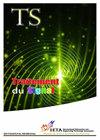Enhanced Classification of Alzheimer’s Disease Stages via Weighted Optimized Deep Neural Networks and MRI Image Analysis
IF 1.2
4区 计算机科学
Q4 COMPUTER SCIENCE, ARTIFICIAL INTELLIGENCE
引用次数: 0
Abstract
Alzheimer's disease, a debilitating neurological disorder, precipitates irreversible cognitive decline and memory loss, predominantly affecting individuals aged 65 years and above. The need for an automated system capable of accurately diagnosing and stratifying Alzheimer's disease into distinct stages is paramount for early intervention and management. However, existing deep learning methodologies are often hampered by protracted training times. In this study, a time-efficient approach incorporating a two-phase transfer learning technique is proposed to surmount this challenge. This method is particularly efficacious in the analysis of Magnetic Resonance Imaging (MRI) data for the identification of Alzheimer's disease. The proposed detection system employs two-phase transfer learning, augmented with fine-tuning for multi-class classification of brain MRI scans. This allows for the categorization of images into four distinct classes: Mild Dementia (MD), Moderate Dementia (MOD), Non-Dementia (ND), and Very Mild Dementia (VMD). The classification of Alzheimer's disease was conducted using various pre-trained deep learning models, including ResNet50V2, InceptionResNetV2, Xception, DenseNet121, VGG16, and MobileNetV2. Among the models tested, ResNet50V2 demonstrated superior performance, achieving a training classification accuracy of 99.35% and a testing accuracy of 99.25%. The results underscore the potential of the proposed method in delivering more accurate classifications than those obtained from extant models, thereby contributing to the early detection and stratification of Alzheimer's disease.基于加权优化深度神经网络和MRI图像分析的增强阿尔茨海默病分期分类
本文章由计算机程序翻译,如有差异,请以英文原文为准。
求助全文
约1分钟内获得全文
求助全文
来源期刊

Traitement Du Signal
工程技术-工程:电子与电气
自引率
21.10%
发文量
162
审稿时长
>12 weeks
期刊介绍:
The TS provides rapid dissemination of original research in the field of signal processing, imaging and visioning. Since its founding in 1984, the journal has published articles that present original research results of a fundamental, methodological or applied nature. The editorial board welcomes articles on the latest and most promising results of academic research, including both theoretical results and case studies.
The TS welcomes original research papers, technical notes and review articles on various disciplines, including but not limited to:
Signal processing
Imaging
Visioning
Control
Filtering
Compression
Data transmission
Noise reduction
Deconvolution
Prediction
Identification
Classification.
 求助内容:
求助内容: 应助结果提醒方式:
应助结果提醒方式:


